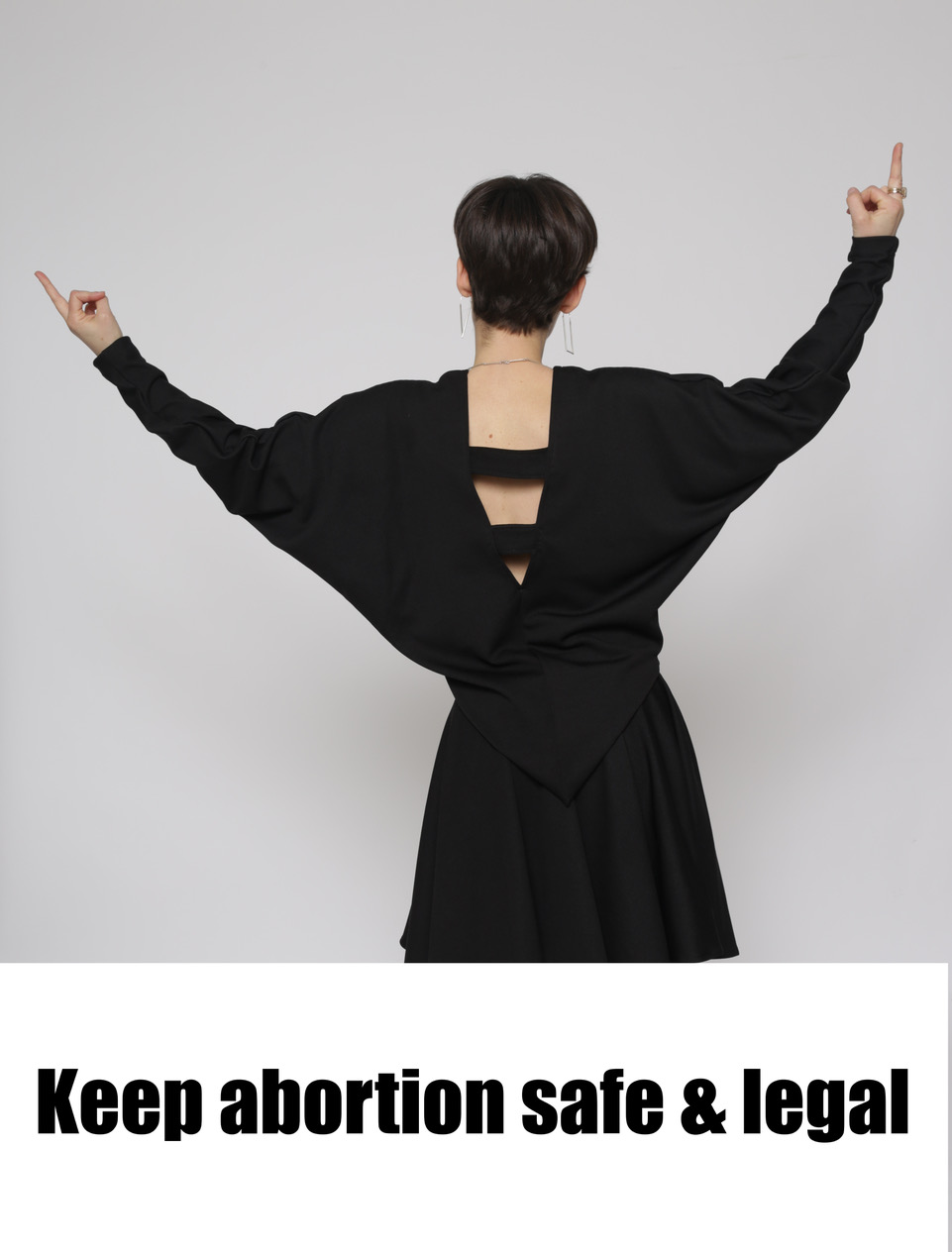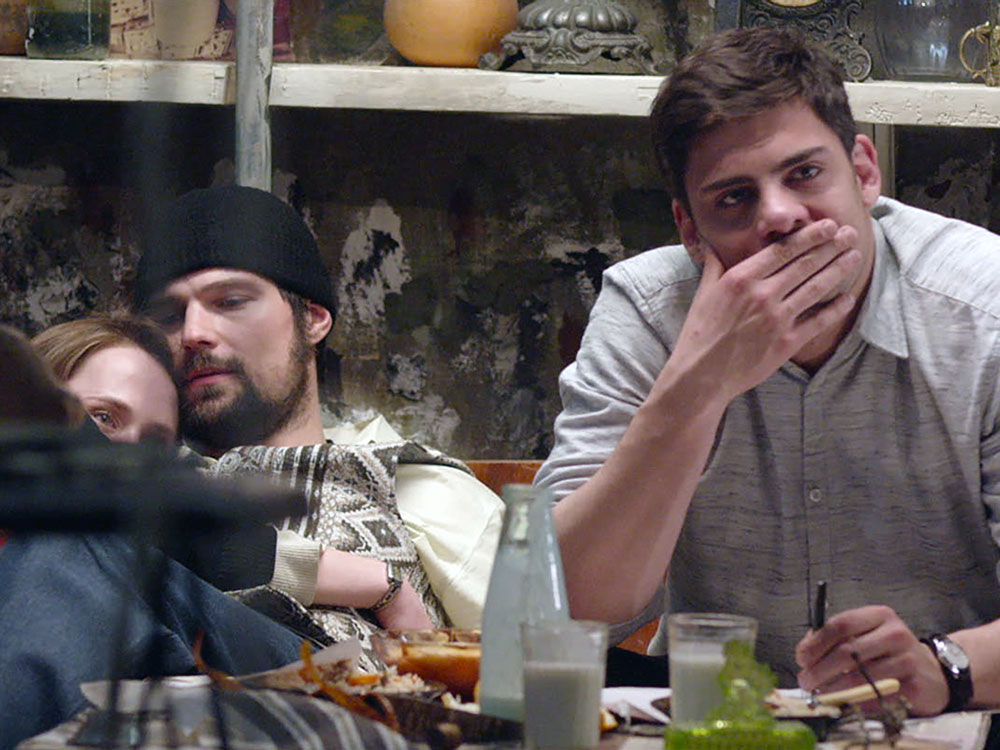The ICA will be on general strike on Fri 20 Oct. Read more
Paula Chambers, Feminist Clutter, 2018
This symposium explores contemporary forms of feminist visual activism and introduces opportunities to question how art practices can articulate and engage with current crises and concerns. Drawing upon the historical legacy of feminist art critique, concepts of cosmopolitanism, citizenship, precarity and vulnerability – negotiated with and through the body – are discussed alongside activist strategies, creative practices and resilience techniques.
Contributors will also examine how these topics function across intersectional and transnational frameworks and how the arts can enable civil and political resilience, become engaged with politics as a response to disaster capitalism and attempt to reform and improve society across borders.
Contributors will also examine how these topics function across intersectional and transnational frameworks and how the arts can enable civil and political resilience, become engaged with politics as a response to disaster capitalism and attempt to reform and improve society across borders.
Dr Alexandra Kokoli teaches at Middlesex University London and is Research Associate at VIAD, University of Johannesburg. An art historian and theorist originally trained in comparative literature, she researches the aesthetic mobilisation of discomfort to political ends, focusing on the fraught relationship between feminism and psychoanalysis. She has published widely in journals including The Art Journal, n.paradoxa, Performance Research, Oxford Art Journal and Hypatia. She is the author of The Feminist Uncanny in Theory and Art Practice (2016), and has edited Feminism Reframed: Reflections on Art and Difference (2008) and Susan Hiller – The Provisional Texture of Reality: Selected Texts and Talks 1977 – 2007 (2008).
Astrid Korporaal is Curator of Education Partnerships at the Institute of Contemporary Arts, London, and PhD candidate in Visual Cultures at Goldsmiths, University of London. Her research is centred on the practice of passivity and interruptive embodiment in the works of female contemporary artists. Previously, she worked as Assistant Curator at FormContent and co-founder and Director of Almanac Projects in London and Turin.
Dr Basia Sliwinska is a Senior Lecturer in Cultural and Historical Studies at the University of the Arts London. Her research is situated within feminist art history and critical theory and focuses on concepts of the body, activism, gender and citizenship within contemporary women's art practice. Sliwinska recently co-edited The Evolution of the Image: Political Action and the Digital Self (2018); published The Female Body in the Looking-glass: Contemporary Art, Aesthetics and Genderland (2016); and co-edited issue 'Trans-figurations: Transnational Perspectives on Domestic Spaces’ for the journal Third Text (2016).
Hilary Robinson is Professor of Feminism, Art, and Theory at Loughborough University. Her publications include Visibly Female: Women and Art Today (1987); Reading Art, Reading Irigaray: The Politics of Art by Women (2006); and Feminism-Art-Theory 1968 – 2014 (2015). She describes herself as a recovering Dean and has held positions at Carnegie Mellon University, Pittsburgh, and Middlesex University London. Robinson is currently working on a book titled ReSisters: Art, Activism, Feminist Resistance.
Dr Magdalena Górska is Assistant Professor at the Graduate Gender Programme, Department of Media and Culture Studies and the Institute for Cultural Inquiry (ICON), Utrecht University. Her dissertation book Breathing Matters: Feminist Intersectional Politics of Vulnerability (2016) develops a non-universalising and politicised conceptualisation of embodiments and affects understood as agential actors of intersectional and quotidian politics of vulnerability. She is currently developing a new research project titled ‘Unlivable Lives’ based on interviews with individuals who attempted or consider suicide. It analyses what lived experiences make some lives more suffocating than others, and in what quotidian, individual and structural contexts.
Małgorzata Markiewicz is a graduate of the sculpture department of the Academy of Fine Arts, Kraków where she was awarded a PhD. In 2004 and 2011, Markiewicz received scholarships from The Ministry of Culture and National Heritage of Poland. She was awarded a number of prestigious residencies including The London Summer Intensive 2015, Camden Arts Centre and Slade School of Fine Art, UCL; and the Christiania Researcher in Residence (CRIR) in 2014, among others. Markiewicz’s artistic practice explores the complexity of contemporary gender dynamics within the context of domestic environments and the wider society. Working across sculpture, photography, textiles and performance, Markiewicz’s practice continues the legacy of feminist avant-garde artists of the 1970s.
Paula Chambers is an artist, Subject Leader for Sculpture on BA (Hons) Fine Art, Leeds Arts University and is studying for a practice-led PhD at Middlesex University London. She has presented at numerous conferences on subjects of feminism, contemporary art and the domestic, including Decorating Dissidence at Queen Mary University of London; Paradox, For, About, Nearby: The Value of Diversity and Difference in Fine Art Practice, Research and Education at University of the Arts London; and Theorising Motherhood in The Academy, Manhattan College, NY. Chambers has published articles in Performance Research, JourMS (the Journal of Mother Studies) and her solo exhibitions include Home (dis)Comforts, Dye House Gallery, Bradford College, Carlton; Transcendental Housework, Stockport Art Gallery, Stockport; and Domestic Pirate, Show Space, London.
Dr Serkan Delice is Lecturer in Cultural and Historical Studies at London College of Fashion, UAL. His current research looks at fashion media discourses on race, labour and cultural appropriation. He also explores the centrality of refugee and immigration labour to fashion production in contemporary Turkey. He co-edited Muamma sexualities: Queer culture and dissidence in Turkey (2012), published a chapter on masculinity, male homosexuality and social transgression in Ottoman Istanbul to Gender and Sexuality in Muslim Cultures (2015) and is contributing a chapter on fashion production and the European refugee crisis in a forthcoming publication from Yale University Press (2019).
Wail Qasim is a writer, critic and activist whose work spans philosophy and politics, specifically dealing with racism, issues of queer and black social movements, and their media strategies. Wail's writing has been featured in The Guardian, The Independent, VICE and London Review of Books. They teach at the Sandberg Instituut Critical Studies department in Amsterdam and recently completed a residency at London's MayDay Rooms Archive.
Astrid Korporaal is Curator of Education Partnerships at the Institute of Contemporary Arts, London, and PhD candidate in Visual Cultures at Goldsmiths, University of London. Her research is centred on the practice of passivity and interruptive embodiment in the works of female contemporary artists. Previously, she worked as Assistant Curator at FormContent and co-founder and Director of Almanac Projects in London and Turin.
Dr Basia Sliwinska is a Senior Lecturer in Cultural and Historical Studies at the University of the Arts London. Her research is situated within feminist art history and critical theory and focuses on concepts of the body, activism, gender and citizenship within contemporary women's art practice. Sliwinska recently co-edited The Evolution of the Image: Political Action and the Digital Self (2018); published The Female Body in the Looking-glass: Contemporary Art, Aesthetics and Genderland (2016); and co-edited issue 'Trans-figurations: Transnational Perspectives on Domestic Spaces’ for the journal Third Text (2016).
Hilary Robinson is Professor of Feminism, Art, and Theory at Loughborough University. Her publications include Visibly Female: Women and Art Today (1987); Reading Art, Reading Irigaray: The Politics of Art by Women (2006); and Feminism-Art-Theory 1968 – 2014 (2015). She describes herself as a recovering Dean and has held positions at Carnegie Mellon University, Pittsburgh, and Middlesex University London. Robinson is currently working on a book titled ReSisters: Art, Activism, Feminist Resistance.
Dr Magdalena Górska is Assistant Professor at the Graduate Gender Programme, Department of Media and Culture Studies and the Institute for Cultural Inquiry (ICON), Utrecht University. Her dissertation book Breathing Matters: Feminist Intersectional Politics of Vulnerability (2016) develops a non-universalising and politicised conceptualisation of embodiments and affects understood as agential actors of intersectional and quotidian politics of vulnerability. She is currently developing a new research project titled ‘Unlivable Lives’ based on interviews with individuals who attempted or consider suicide. It analyses what lived experiences make some lives more suffocating than others, and in what quotidian, individual and structural contexts.
Małgorzata Markiewicz is a graduate of the sculpture department of the Academy of Fine Arts, Kraków where she was awarded a PhD. In 2004 and 2011, Markiewicz received scholarships from The Ministry of Culture and National Heritage of Poland. She was awarded a number of prestigious residencies including The London Summer Intensive 2015, Camden Arts Centre and Slade School of Fine Art, UCL; and the Christiania Researcher in Residence (CRIR) in 2014, among others. Markiewicz’s artistic practice explores the complexity of contemporary gender dynamics within the context of domestic environments and the wider society. Working across sculpture, photography, textiles and performance, Markiewicz’s practice continues the legacy of feminist avant-garde artists of the 1970s.
Paula Chambers is an artist, Subject Leader for Sculpture on BA (Hons) Fine Art, Leeds Arts University and is studying for a practice-led PhD at Middlesex University London. She has presented at numerous conferences on subjects of feminism, contemporary art and the domestic, including Decorating Dissidence at Queen Mary University of London; Paradox, For, About, Nearby: The Value of Diversity and Difference in Fine Art Practice, Research and Education at University of the Arts London; and Theorising Motherhood in The Academy, Manhattan College, NY. Chambers has published articles in Performance Research, JourMS (the Journal of Mother Studies) and her solo exhibitions include Home (dis)Comforts, Dye House Gallery, Bradford College, Carlton; Transcendental Housework, Stockport Art Gallery, Stockport; and Domestic Pirate, Show Space, London.
Dr Serkan Delice is Lecturer in Cultural and Historical Studies at London College of Fashion, UAL. His current research looks at fashion media discourses on race, labour and cultural appropriation. He also explores the centrality of refugee and immigration labour to fashion production in contemporary Turkey. He co-edited Muamma sexualities: Queer culture and dissidence in Turkey (2012), published a chapter on masculinity, male homosexuality and social transgression in Ottoman Istanbul to Gender and Sexuality in Muslim Cultures (2015) and is contributing a chapter on fashion production and the European refugee crisis in a forthcoming publication from Yale University Press (2019).
Wail Qasim is a writer, critic and activist whose work spans philosophy and politics, specifically dealing with racism, issues of queer and black social movements, and their media strategies. Wail's writing has been featured in The Guardian, The Independent, VICE and London Review of Books. They teach at the Sandberg Instituut Critical Studies department in Amsterdam and recently completed a residency at London's MayDay Rooms Archive.
02:00 pm
Tue, 10 Jul 2018
Studio
Programme
3:15 – 3:30 Prof Hilary Robinson, ‘But does it work in theory? A critique of masculinist writing on art and activism’
3:30 – 3:45 Dr Alexandra Kokoli, ‘Domestic Fronts’
3:45 – 4:00 Dr Magdalena Górska, ‘Resonances’
4:00 – 4:15 Wail Quasim, ‘Young Workers’ Camera: the personal and political life of young peoples’ images’
4:15 – 4:30 Dr Serkan Delice, ‘Fashion and its refugees: labour, ethics and activism in neoliberal times’
4:30 – 4:45 Dr Layal Ftouni
5:15 – 6:00 Panel discussion
Red Members gain unlimited access to all exhibitions, films, talks, performances and Cinema 3.
Join today for £20/month.













no. 236848.